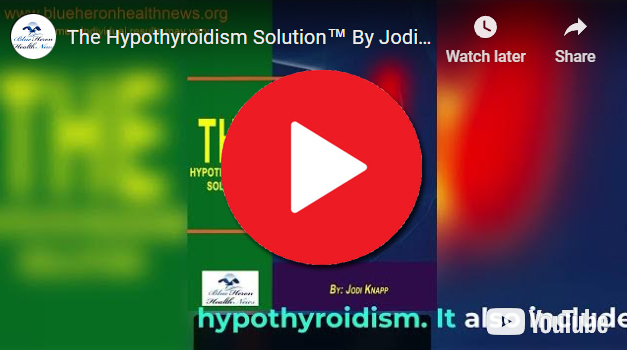
The Hypothyroidism Solution™ By Jodi Knapp Jodi has provided a stepwise guide in the form of The Hypothyroidism Solution to help you in regulating the levels of your thyroid in a better and natural way. Along with curing hypothyroidism, it can also care a number of other health issues experienced by people all over the world. No side effect due to this program has been reported so far. So you can follow this program without any financial as well as emotional risk.
What is subclinical hypothyroidism?
Subclinical hypothyroidism is a mild form of underactive thyroid function that is characterized by elevated levels of thyroid-stimulating hormone (TSH) in the blood while the levels of thyroid hormones (free T4 and T3) remain within the normal range. Essentially, the thyroid gland is not producing enough hormones to meet the body’s needs, but not to the extent that it causes overt hypothyroidism symptoms.
Key Characteristics of Subclinical Hypothyroidism:
- Elevated TSH: TSH levels are higher than the normal range, indicating that the pituitary gland is signaling the thyroid to produce more hormones.
- Normal Thyroid Hormones (T4 and T3): Despite the elevated TSH, the levels of thyroxine (T4) and triiodothyronine (T3) remain within the normal range, so the body is still maintaining adequate thyroid hormone levels.
- Minimal or No Symptoms: Individuals with subclinical hypothyroidism often have few or no symptoms of hypothyroidism, as the body has not yet experienced significant thyroid hormone deficiency. However, some people may report mild symptoms such as fatigue, weight gain, or depression.
Causes of Subclinical Hypothyroidism:
- Autoimmune Thyroiditis (Hashimoto’s Thyroiditis): The most common cause, where the immune system gradually attacks the thyroid gland.
- Iodine Deficiency or Excess: Both can disrupt normal thyroid function.
- Thyroid Surgery or Radiation: Past treatments affecting the thyroid can lead to subclinical hypothyroidism.
- Medications: Certain medications, such as lithium or amiodarone, can interfere with thyroid function.
Potential Progression:
Subclinical hypothyroidism can progress to overt hypothyroidism, where TSH levels continue to rise and thyroid hormone levels fall below normal. This progression is more likely in individuals with higher baseline TSH levels, positive thyroid antibodies (indicating autoimmune thyroid disease), or a history of thyroid issues.
Management:
- Monitoring: Subclinical hypothyroidism is often monitored through regular blood tests to check TSH and thyroid hormone levels. Many patients do not require immediate treatment but need ongoing monitoring.
- Thyroid Hormone Replacement Therapy: Treatment may be considered if TSH levels are significantly elevated, if symptoms develop, or if there are risk factors such as pregnancy, heart disease, or a strong family history of thyroid disorders.
Risks and Considerations:
Subclinical hypothyroidism may have subtle impacts on health, including possible effects on cardiovascular function, cholesterol levels, and mental health. In pregnant women, even subclinical hypothyroidism can pose risks to fetal development, so careful monitoring is essential.
In summary, subclinical hypothyroidism is a condition where thyroid function is slightly impaired, resulting in elevated TSH but normal thyroid hormone levels. It often requires monitoring but may not need immediate treatment unless symptoms appear or the condition worsens.

The Hypothyroidism Solution™ By Jodi Knapp Jodi has provided a stepwise guide in the form of The Hypothyroidism Solution to help you in regulating the levels of your thyroid in a better and natural way. Along with curing hypothyroidism, it can also care a number of other health issues experienced by people all over the world. No side effect due to this program has been reported so far. So you can follow this program without any financial as well as emotional risk.